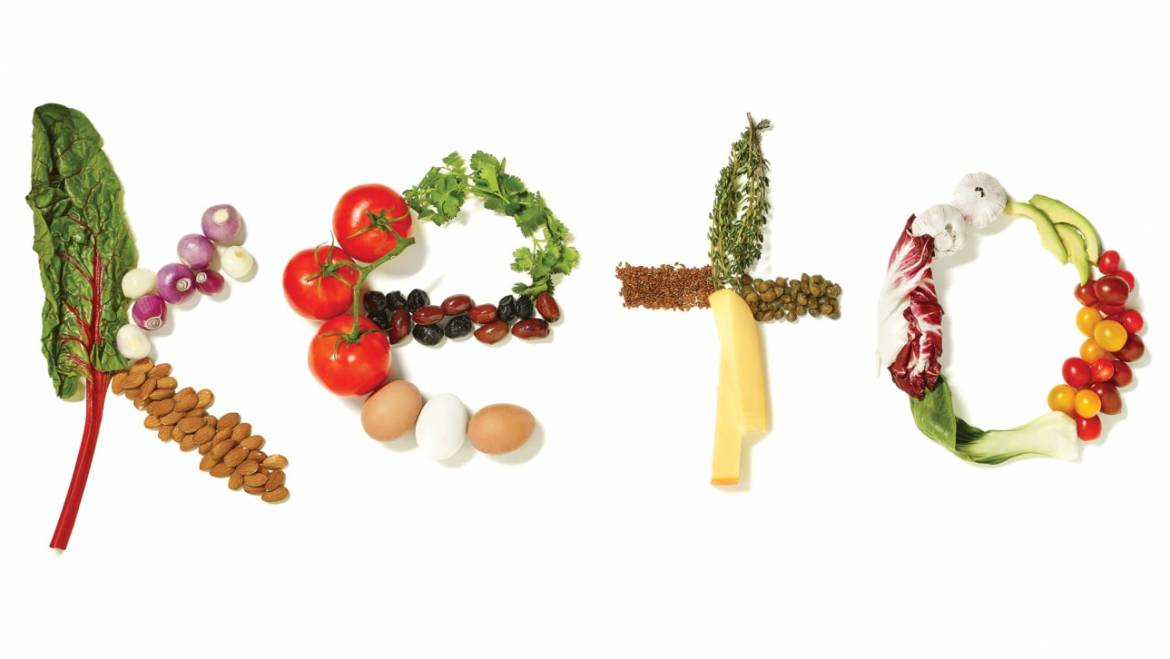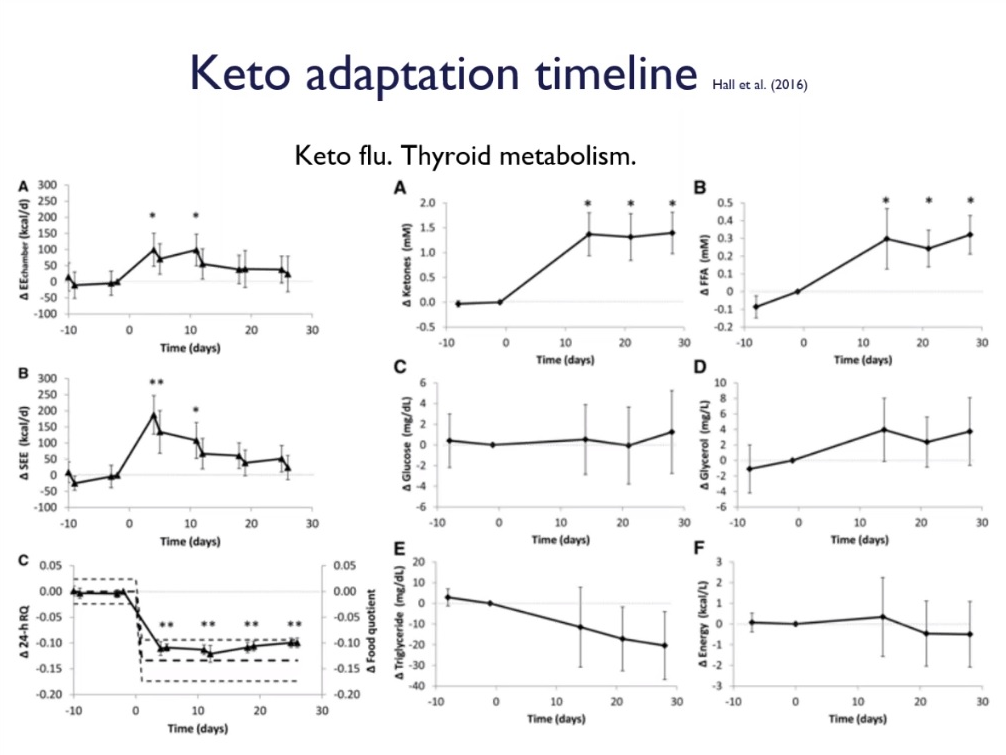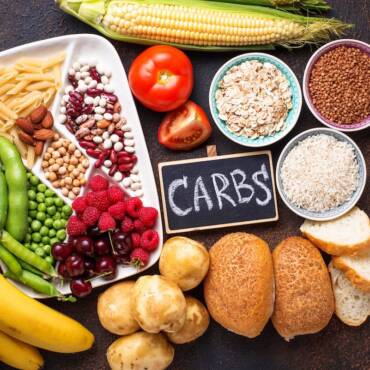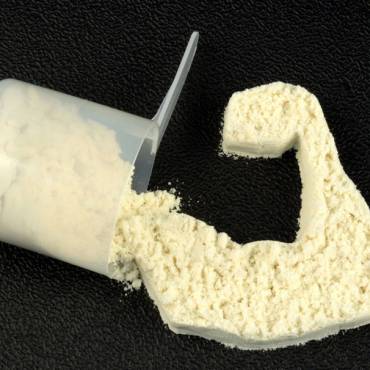Ketogenic Diet and Performance
Summary:
Ultra endurance training, due to the use of mitochondrial respiration, is one candidate to prove potentially keto appropriate (although these benefits may be due to increased protein intake rather than the lower carb intake itself). There is additional evidence that it may not hamper performance in short bout, high intensity exercise that utilizes the phosphate energy system (such as Olympic weightlifting or powerlifting). Therefore it may have some utility as a peak week strategy for sports that require athletes to make weight. I would advise caution of using keto for Olympic Weightlifters and Powerlifters as a standard nutrition strategy due to the fact that even though it may not appear to alter performance in ultra short bout lifts, it has the potential to attenuate strength gains when used as a standard training modality over the long-term (during which multiple energy systems are likely utilized).
Many keto proponents point towards the performance successes of elite cyclists using ketogenic dietary strategies. These athletes are likely using an exogenous aid (potentially insulin and a PDH enhancer like dichloroacetate) to allow for the benefits of a carbohydrate load. Glucose intolerance would likely be present in a normal keto-adapted individual due to down-regulation of pyruvate dehydrogenase. This would necessitate a supplemental intervention to take full advantage of a carbohydrate loading protocol.
For a look at the research regarding Keto, body composition and health, please refer to our Body Composition and Health article.
Contextual:
Ketosis is entered after ~48 hours according to Sumithran and Proietto (2008). According to Hall et al (2016), keto-adaptation takes ~7-10 days. This is based on maximization of the rates of adipose lipolysis, hepatic ketogenesis, and whole body daily fat oxidation. This is the current research definition of keto-adaptation.
Despite a significant improvement in V̇O2 peak, adaptation to low carb dieting negated performance benefits in elite endurance athletes, in part due to reduced exercise economy.
In a study by Phinney (2004): “both groups experienced a lag in performance across the first week or two of carbohydrate restriction, after which both peak aerobic power and sub-maximal (60–70% of VO2max) endurance performance were fully restored.”
https://www.ncbi.nlm.nih.gov/pmc/articles/PMC524027/
“An exercise trial revealed significant impairment of exercise in subjects following the ketogenic diet. The results showed that in the case where the subjects of two investigated groups did not differ in their somatic variables, long-term adherence to the keto diet was associated with substantially reduced exercise performance in apparently healthy subjects, along with an association with a small unfavorable effect on their lipid profile.”
https://www.mdpi.com/2072-6643/10/12/1914
Burke (2015): “The time required to achieve optimal adaptation (and, therefore, the period that requires investigation in new studies) is claimed to be at least 2–3 weeks, with at least 1 week required before the feelings of lethargy and reduced exercise capacity abate”. “However, the failure to detect clear performance benefits during endurance/ultra-endurance protocols, combined with evidence of impaired performance of high-intensity exercise via a down-regulation of carbohydrate metabolism led this author to dismiss the use of such fat-adaptation strategies by competitive athletes in conventional sports.”
https://www.ncbi.nlm.nih.gov/pmc/articles/PMC4672014/
Paoli et al (2012): “We noted that some athletes complained that they were not able to finish the exercises proposed during the training but these were temporary effects present only during the first week after which they disappeared completely.”
https://www.ncbi.nlm.nih.gov/pmc/articles/PMC3411406/
Low muscle glycogen may not impair all resistance exercise performance, but increasing blood glucose prior to exercise may enhance higher volume, longer duration performance. Carbohydrate-restricted hypocaloric diets are effective for reducing fat mass during resistance exercise, but carbohydrate-sufficient hypercaloric diets are likely optimal for inducing muscle hypertrophy.
https://www.sciencedirect.com/science/article/pii/S0899900718309535
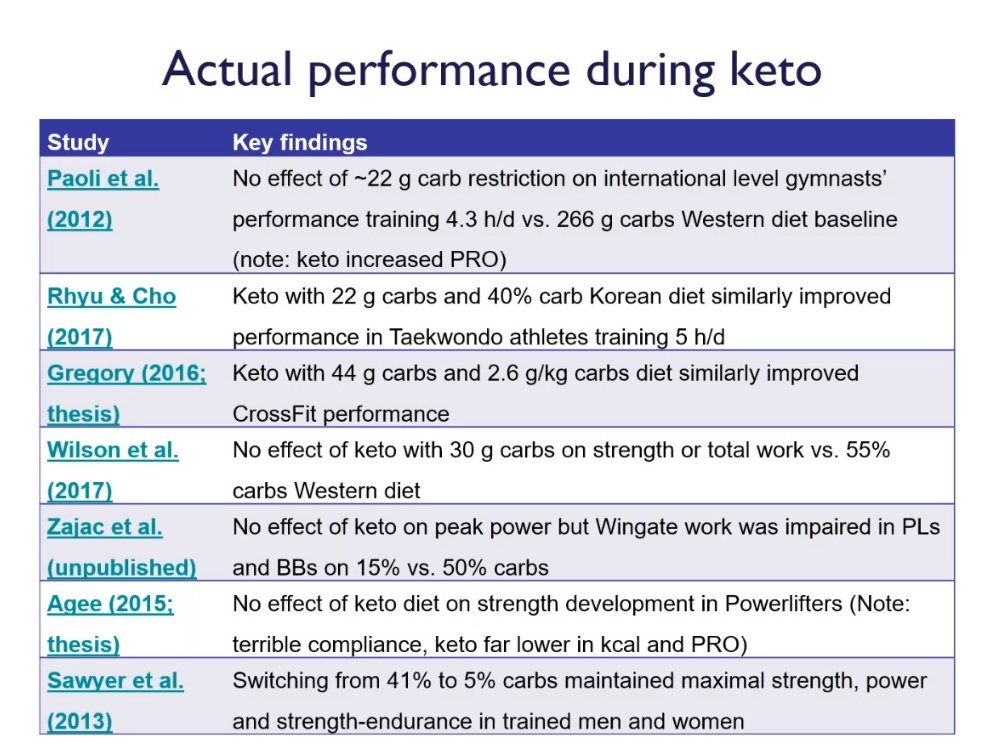
Credit: Henselmans
Some of these studies suggest a potential wash as far as performance enhancement goes when compared to a standard diet, which may be due to extended time period of the trials (beyond the adaptation phase). No significant performance superiority has been noted with a keto regimen.
Exogenous Ketone Supplements:
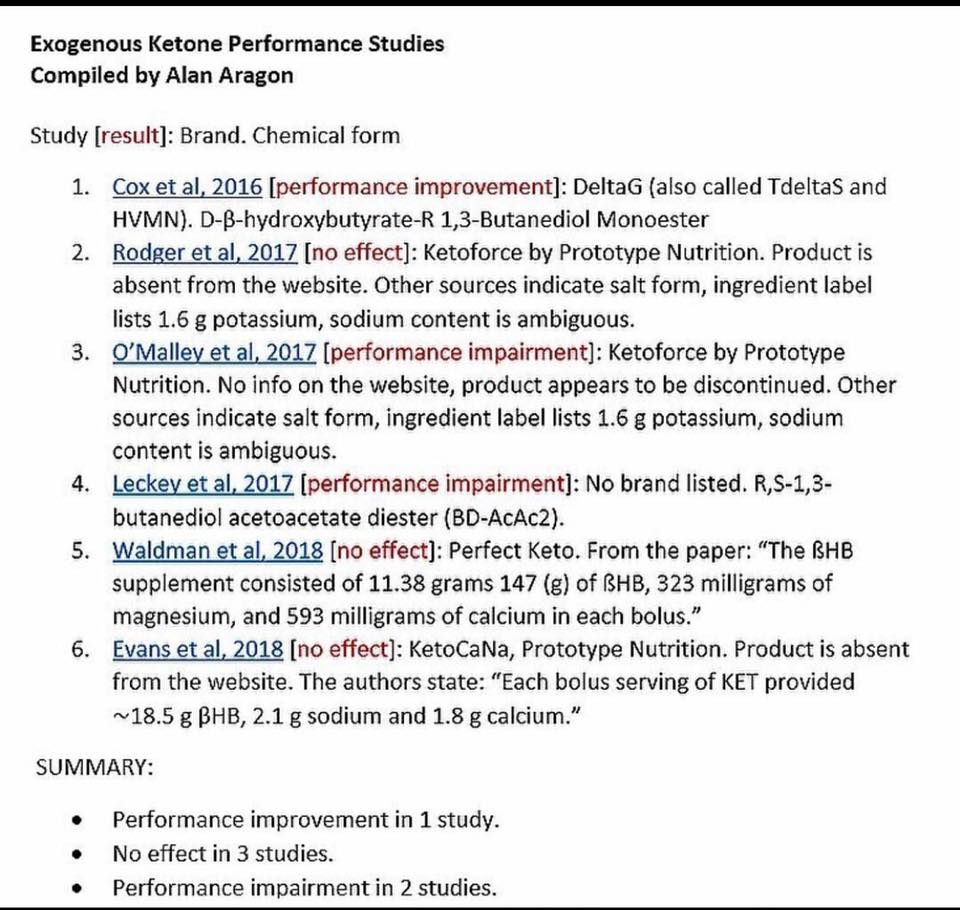
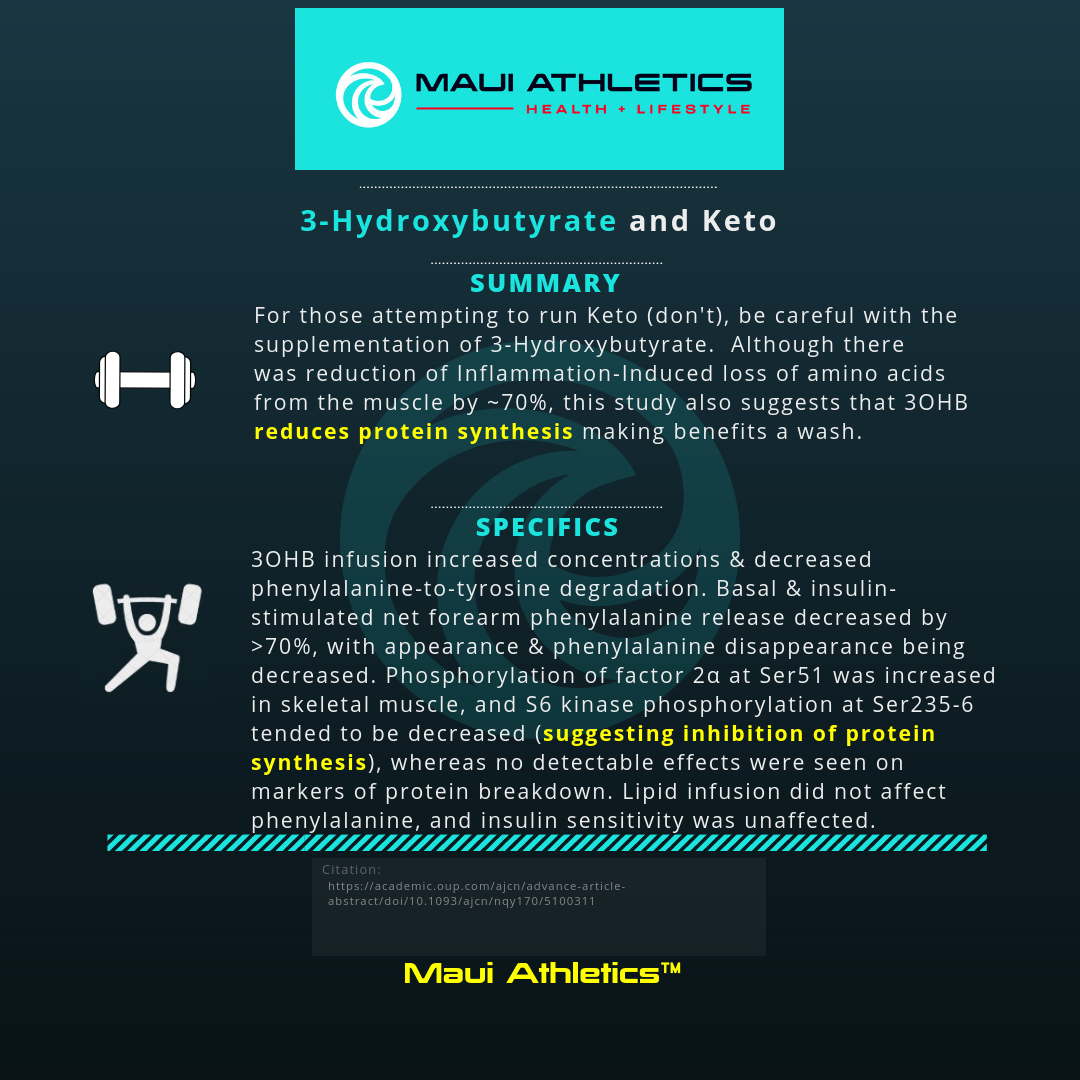
BHB (exogenous ketones) were shown not to be ergogenic in healthy individuals. “In a repeated-measures, crossover design, ten participants (three males; seven females) performed two stages of a duration-modified Bruce treadmill protocol. Participants blindly consumed either 1 ounce of an exogenous BHB solution (KETO) or a noncaloric placebo (CON) 30 minutes prior to exercise testing. Blood ketone and glucose concentrations were measured prior to supplementation (baseline), immediately before exercise, and after exercise. Oxygen consumption (VO2), respiratory exchange ratio (RER), energy expenditure (EE), and rating of perceived exertion (RPE) were recorded during the last two minutes of each stage. Blood BHB concentrations were significantly elevated at the pre-exercise and postexercise time points as compared to the CON condition (p < .001), and blood glucose was significantly elevated postexercise in both conditions as compared to baseline levels (p < .001). No significant between-trial differences (p > .05) were found for VO2, RER, EE, or RPE. The intervention of this study did not produce evidence of an ergogenic benefit from BHB supplementation in a healthy subject pool.”
Shaun James & Beau Kjerulf Greer (2018) Influence of Exogenous β-Hydroxybutyrate on Walking Economy and Rating of Perceived Exertion, Journal of Dietary Supplements, doi.org/10.1080/19390211.2018.1471562

